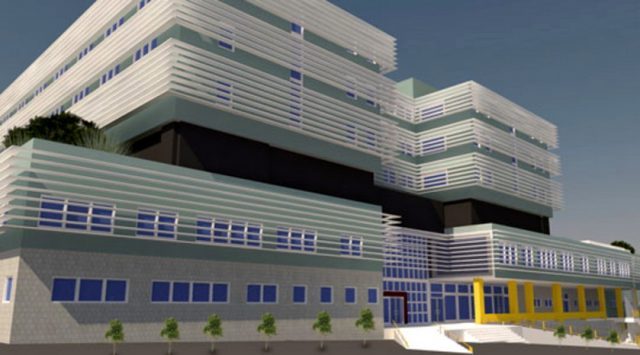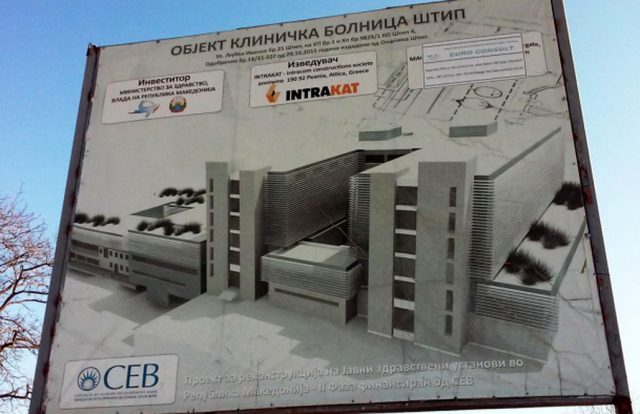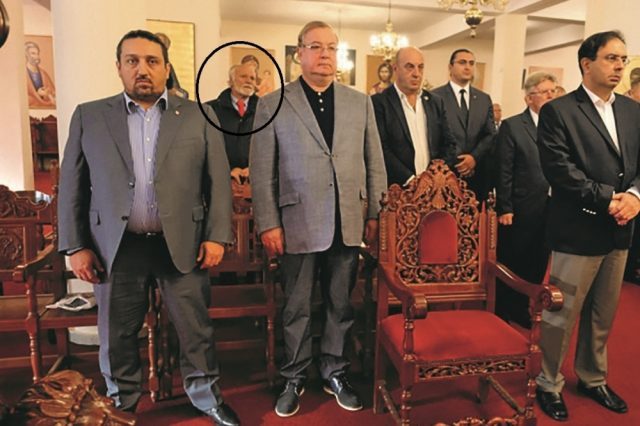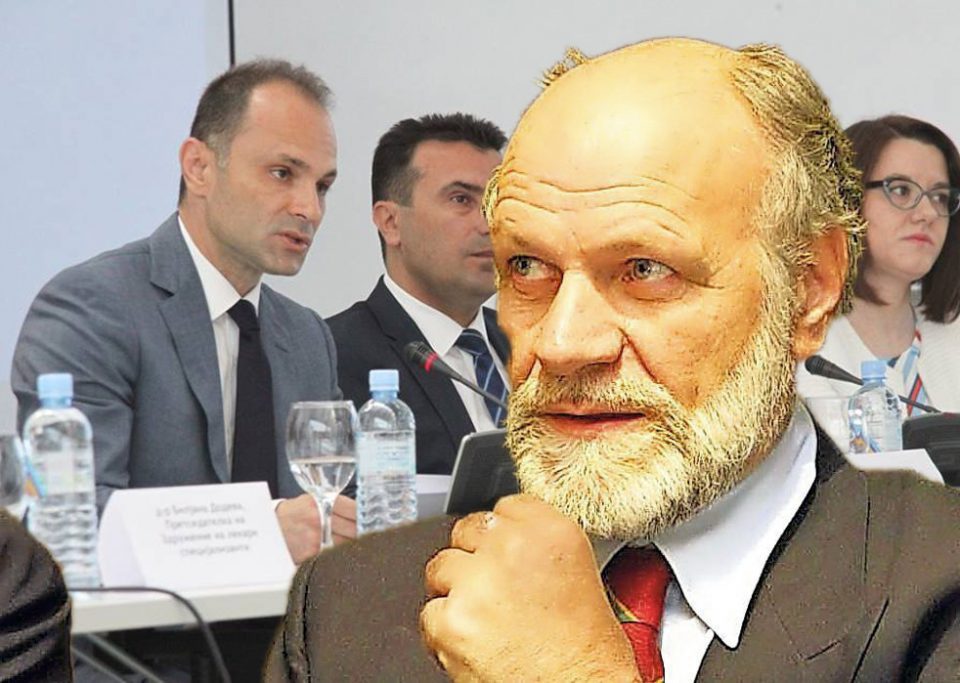On March 3, 2016, the then VMRO-DPMNE government laid the foundation stone for the construction of a new clinical center in Stip, which was to be completed by the end of 2019. The 34,000-square-meter clinical center was to operate and meet the needs of over 200,000 people in that region of Macedonia.
That investment, along with the Skopje-Stip highway, with over 100 million total joint ventures, is the largest investment project in Eastern Macedonia since World War II to date. The clinical center itself is projected to total a 30m-euro construction, with financial backing from European loans, and the construction work, commissioned by the European Commission, is entrusted to the Greek company Intrakat.
In addition, 16 million euros have been set aside to equip the clinical center under the project. Under these conditions, the contractor Intrakat agreed to build the new Clinical Center under those conditions, and at an agreed time.
But here in the beginning of 2020 the Clinical Center Stip – s not there, writes the Vecer news portal.
In early February 2019, Health Minister Venko Filipce said that the Greek construction company Intrakat, with which the Ministry of Health had signed a contract, terminated the contract with its current subcontractor (Beton Stip) and requested an extension of the construction deadline. The deadline was extended to early 2020.

Hence, Vecer asks why Intrakat terminated the contract with Beton Stip. Why did the Ministry of Health allow the extension of the deadline by even one year without requiring financial compensation for the delay from Intrakat? Why didn’t Venko Filipce act as required by law – if the contractor Intrakat had not fulfilled its obligation to activate the bank guarantee?
As stated, the subcontractor of the construction works was the company Beton Stip. On November 9, 2018, the SPO opened an investigation under the name “Empire” against the owners of Beton Stip, after which Orce Kamcev was immediately arrested with other persons from that investigation.
Shortly before the “Empire” investigation was opened in May 2018, it was found that the Greek company Intrakat owes subcontractor Beton Stip about 2m euros. Intrakat received the money from the state for the construction of a Clinical Center but refuses to pay some of it to Beton Stip, which is liable to the subcontractor which, due to its large debt, is unable to pay its workers, materials for work, as well as the companies that work for them on that building. This is the reason for the later termination of the cooperation between Intrakat and Beton Stip.
Immediately after the arrest of Orce Kamcev, Intrakat’s director, Dimitrios Koutras, pushed Beton Stip to be sold to Intrakat for 1.2 million euros. So, to buy a company to which they owe 2 million for only 1.2 million euros, which is rejected.
According to information from the companies that worked for Beton Stip, Vecer finds out that their engagement went through Trajce Zaev. Intrakat is linked to former Prime Minister Ljubco Georgievski and his Minister of Civil Engineering Ljupco Balkovski, who is the director of the project unit. After the cessation of works by Beton Stip at the building, the project management and Intrakat agree with Beton Stip’s partners to continue working on the building on their own, regardless of their binding agreements with Beton Stip. Intrakat, after being refused a bid to buy Beton Stip for twice smaller amount it owes them, falls into bankruptcy on July 2, 2019. Beton Stip’s debt in bankruptcy is € 1.25 million which means only about half of what Intrakat owes them and that Government-backed Intrakat knowingly destroyed Beton Stip after failing to buy it at a dumping price.

Why mention government support for Intrakat in this business relationship? When it won the construction tender, Intrakat submitted a bank guarantee to the Ministry of Health, but the bank guarantee was from Beton Stip! Namely, they submitted a bank guarantee in the amount of EUR 3.5 million to Intrakat to become subcontractors in the construction of the Clinical Center Stip, which was then submitted by Intrakat to the Ministry of Health as their guarantee.
This means that after the termination of the contract between Intrakat and Beton Stip the bank guarantee before the Ministry of Health does not apply, and Intrakat must withdraw it and return it to Beton Stip and give its own. In such a case either a new tender is called or, if it does not submit guarantee, Minister Venko Filipce is obliged to terminate the tender agreement and to request financial compensation from Intrakat, but he has not done so.
Instead, Venko Filipce in 2018 extended Intrakat’s deadline for the construction by early 2020, and now a new extension is announced by early 2021. By the way, the Ministry of Health and Venko Filipce announced the approval of an additional payment of € 7 million for Intrakat over the agreed price because there were higher costs due to construction delays! To reward them with 7 million euros because they are two years late in performing the activities they have agreed to do with a contract.
Do you remember that in court, when Orce Kamcev testified in the Racket case, Boki 13 asked him about his meeting with Health Minister Venko Filipce, and it was confirmed that Boki 13 hosted such a meeting at a time when the SPO was investigating the “Empire” case. This happens before Beton Stip goes bankrupt due to the debt from Intrakat to them, and when Intrakat is actively seeking to take over Beton Stip at non- realistic price.
The investigation into “Racket”, as well as the analysis around it, mentions that people directly linked to Beton Stip were targets of racketeering: Orce Kamcev from Orka Holding, Zoranco Mitrovski (Ezimit Stip), who was chairman of the board of directors, and Cvetan Pandelevski (Pelisterka) board member.

Dimitris Koutras, chief executive of the Greek company Intrakat, is also known as the director of the Greek company Aktor, which has been under investigation for money laundering in the construction of the Demir Kapija-Smokvica highway. Investigations into Kutras and Aktor were also opened in Serbia and Bulgaria.




Comments are closed for this post.